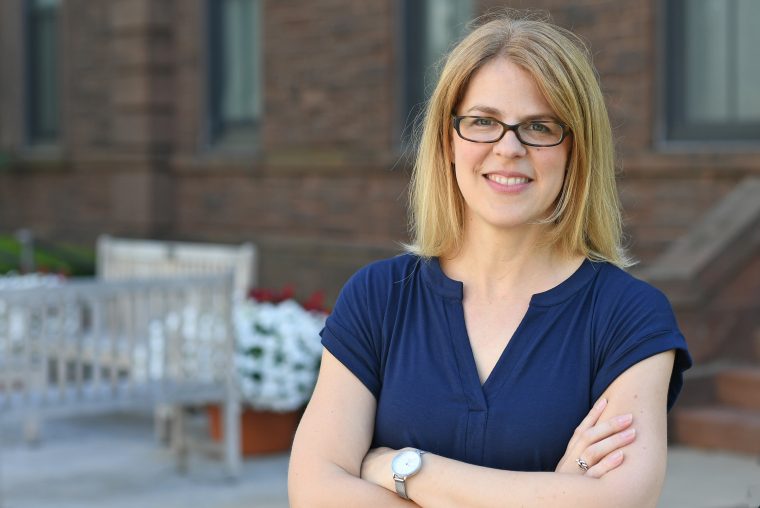Fowler: Effective Communication Around Health Crises Has “Life-Saving Consequences”


Associate Professor of Government Erika Franklin Fowler is an expert on political communication. When she’s not analyzing campaign advertising with the Wesleyan Media Project, she investigates how media, including ads and news, influence opinions and attitudes in a variety of health-related policy areas. Her past studies, many of which are co-authored with Sarah Gollust ’01, have examined media around the Affordable Care Act, mammography screening and the HPV vaccine.
“I’m drawn to research on messaging at the intersection of health and politics because it has such important—sometimes life-saving—consequences for citizens, and there are practical actions we can all take to improve the information environment,” said Fowler.
As the current coronavirus pandemic unfolded, Fowler reached out to government leaders in Connecticut with advice on communicating effectively in order to best protect public health. Here was some of the advice she shared:
- We know from prior situations that the time is now for government (and specifically health authorities) to get out in front with simple clear messaging. Uncertainty and a lack of clear communication to ordinary citizens breeds lots of opportunity for misinformation and risks confusion in behavior that is very dangerous to the state’s public health response.
- Governor Ned Lamont’s “stay safe, stay at home” slogan is a helpful start because the language is clearer than “social distancing,” which is a new term to most citizens, especially those who lack time to consume a lot of news. And further guidance—in the form of short and clear statements—should be provided about what that means for citizens in addition to business leaders. For example, to the extent that they are able to, citizens should be directed to order everything in that they can, to go to the grocery store only once a week, to check on neighbors but stay more than six feet apart from others, to avoid touching surfaces that others may have touched or if they do to wash their hands before touching their face, and so on.
- These messages need to be presented not only on government websites, but also on social media where citizens can encounter, share, and interact with them directly to help spread the word. Messages will be most effective if they come from state health departments, not only because Facebook, Google and Twitter are trying to drive traffic toward trusted health officials but also because citizens are less likely to discount messaging from public health and medical experts than they are politicians from the opposite side of the aisle.
- Health crises like this can be politicized. For example, citizens and politicians who are unhappy with the drastic measures being employed will speak out against them, sparking controversy about the right course of action, which can jeopardize our collective action to protect public health. The state needs to do its best to avoid citizens retreating to partisan silos where they are no longer persuadable to key, life-saving messages. Social science research strongly suggests that under uncertain conditions when anxiety is high and health and politics are involved, health experts are more trusted, and therefore putting them consistently out in front of the state’s messaging makes it much more likely that citizens will listen to the recommendations.
Fowler also had advice for news media covering the pandemic. In her research, she has found that media often resort to covering the politics of a situation over critical substantive information. After all, the politics are ever-changing while the practical messages are more or less constant (for example, the CDC isn’t going to stop recommending that people wash their hands). But in times of crisis like this, she said it’s important to incentivize spreading practical messages about what citizens can do to stay safe and how their actions help others do the same, even if it feels repetitive.
For all of us, Fowler stressed that it’s important to think twice before sharing information on social media or through other means.
“Check the source and do some research, or only share information from trusted sources,” she said. “It’s even better if you share primarily local health authority information.”

